
Kimberley Evans
A healthy Catholic school is built on the emotional, physical and spiritual wellbeing of healthy Catholic teachers. How can teachers and leaders work together to build a robust and consistent approach to looking after the people who make a Catholic school so special? In this episode we spend some time with Kimberley Evans the founder of Nourish The Workplace who helps schools build healthy practices for long-term teacher wellbeing.
We begin with a discussion of the need for teachers to monitor their own wellbeing and then progress to exploring the role of leaders in building school communities that recognise the need to protect the schools most important resource, its staff.
With the growth in complexity in modern education the need to care for the health of teachers is more pressing than ever.
My New Book Is Out Now
Finishing Strong is a loud and clear call for every young person to make the very best of their final years of school. Based on hundreds of seminars around the world to a huge number of students Jonathan Doyle offers powerful, practical advice that can make a major difference.
Each chapter offers inspiring stories, clear principles and actionable steps for identifying and moving forward in study, life, friendships and each key area of life.
Jonathan also includes journal questions and guided reflections at the end of each chapter to maximise learning and ensure the ideas and principles can be made real, personal and achievable.
If you want to help your child or students make the very best of their final years of high school then it;s time to help them finish strong!
Transcript
Nourish the Catholic Teacher Wellbeing with Kimberley Evans
In this episode Kimberley Evans will share with us tips and insights on how to nourish Catholic Teacher wellbeing. We are going to talk about key indicators for teachers, signs to look out for. We are going to start talking about what makes a great school? What things that leaders and teachers can do to really improve the level of self care and wellbeing to help both individuals and whole school community flourished.
Kimberley Evans is the person behind the project Nourish the Workplace. She’s work in an education for 19 years and realised as many of us do that the greatest resource in education is not buildings, it’s not programs or pentagogs. The greatest resource in any school is always the teachers and the leaders that are in there. And of course as we all know very well, these teachers and leaders get exhausted when they look after themselves. When they get ran down then a whole bunch of things flow from that as we know of stuff like that as we know. Students get the best care educationally as they could. People break, people burn out.
Jonathan Doyle:
Hello there. Kimberly, can you hear me okay?
Kimberley Evans:
Yes I can. Can you hear me all right?
Jonathan Doyle:
It’s absolutely fantastic. We had a call last week, which was less than fantastic due to the audio quality. So this is really good. Why don’t we jump straight and Kimberly Evans, welcome to the Catholic Teacher Podcast. Thank you for making some time for us.
Kimberley Evans:
I’m more than happy to be here.
Jonathan Doyle:
Unless I’m mistaken. Are you a runner?
Kimberley Evans:
Yes. I was meant to be doing the London Marathon this year.
Jonathan Doyle:
Really? Because I checked… when we checked your Twitter feed. I was like… had a sort of strong sense your run. I’ve sort of fallen in love with it here as well. As much as we’re not allowed out too often, it’s just great to get out.
Kimberley Evans:
Yes it is. It’s bringing me some sanity. I have to say, still being able to run.
Jonathan Doyle:
Are you in full lockdown yet? Are you able to get out?
Kimberley Evans:
We’re allowed out once a day for exercise and we’re just hoping that that continues because over the weekend some people were flouting that rule slightly and bending it because the weather’s really nice here and unseasonably nice at the moment, so people were flocking to the parks and the beaches and things like that. Not where you just sit on the beach but just to walk but it was too many people there. So we’re hoping that they’re going to be able to let us continue having our one piece of exercise a day.
Jonathan Doyle:
Absolutely. I saw an article today that the New Zealand health minister was just… is handing out all this advice about you can’t leave your house, you can’t do anything and then he was found photographed 25 kilometers from his house on his own mountain bike doing a training session.
Kimberley Evans:
Yes. We had a very similar thing. The Scottish health advisor, not a minister. She wasn’t a politician, but she was like the senior health person. She had a second home 50 miles away and she’d be going to her second home every weekend whereas she’d been telling everybody else not to do that.
Jonathan Doyle:
Absolutely and your prime minister is not looking too good at the moment either is he?
Kimberley Evans:
No, no. That’s kind of worrying. I think that actually might make people take it seriously. Actually it’s awful this had to come to that but that might make people take it seriously because that’s been very unexpected.
Jonathan Doyle:
Yeah. Look, it’s so different all over the world. We’ve got a huge number of listeners and big shout out to all our American listeners who are right in the thick of it but things have kind of calmed down a little bit here. Like we’re in lockdown, but it looks like the curve has kind of resolved, but what’s the feeling for you guys? Is it sort of still on the upswing?
Kimberley Evans:
Yes. I think the next two weeks are going to be whether or not we see whether or not we flatten the curve and whether or not these things are working or whether or not we’ve got to go stronger and people are hoping we’re not going to have to go quite as strict with the rules as Italy and Spain because their numbers are awful and they’re in a really strict look down as in you’re not allowed to leave the house unless you’ve got an official piece of paper.
Adapting to Lockdown
Jonathan Doyle:
Wow. So listen, we’re going to talk about wellbeing and education and a whole bunch of interesting stuff, but let’s start with the truth. How have you adapted to lock down with family and all that sort of stuff? How are you doing?
Kimberley Evans:
We are okay. My eldest daughter had her main exams canceled, her GCSE. That’s like end of a key stage kind of thing. That was a bit of a worry but actually we’ve had a lot of that sorted out. We now know… we’re just waiting to see what they’re going to actually give her for her results but we’re kind of used to being like this. Not in the strict lockdown, but my husband’s a head of three schools as well. Three primary schools. Actually we’re used to being on long summer holidays all at home together.
Kimberley Evans:
It feels a little bit like a school holiday at the moment. We’re okay. The kids are starting to get bored. I’ve got two teenage girls, so they’re quite happy just laying in bed a lot at the moment and the nice weather has really helped because it’s whipping out in the back garden. They’ve been playing badminton and stuff like that in the back garden. The longer it goes on, the worse it’s going to get but at the moment we’re okay. We’ve got a nice thick house that helps, so we’re all just kind of in different parts of the house. All in different regions for most of the day.
Jonathan Doyle:
It’s like quarantine within quarantine. It’s like you’ve got that room-
Kimberley Evans:
Yeah. We’ve got some space, because I think that’s hard, isn’t it? When you’re with somebody all of the time. I think that’s when it gets kind of hard then you don’t feel like you’ve got your space. Have you not even… If you’re not traveling to work, you’ve not got your commute. Just go and sit in your car and listen to what music you want. You’ve not got the ability to tell you what want to watch.
Jonathan Doyle:
Absolutely.
Kimberley Evans:
Your kids pestering you for food all the time.
Jonathan Doyle:
Yes. See, we had three children under the age of three and a half. We had our super close together and they’re now 13. Actually 13, 12 and 10 and so the dynamics are interesting and my wife is amazing. She has a list in her life of things that she would never do and one of those was teach children, like school staff and-
Kimberley Evans:
Ah goodness! yes.
Jonathan Doyle:
So the pivot has been amazing. One of my daughters comes into the office with me and I’ve got a very private office, which is great, but it’s testing us but I think you’ve probably observed this too. Some of the things that are interesting is we’ve got to know neighbors in a way that we wouldn’t have normally and the kids are like out riding bikes more. As tragic as the circumstance is, there’s also been… like we’re seeing a lot of people exercising. A lot of people out doing stuff and keeping active that previously wouldn’t have been.
Kimberley Evans:
Yeah. There are some things I think if I’m hoping that because it’s going to be quite a long time for all of us before we even get back to any kind of normality long enough for these things to sit in, to be a habit so people will hopefully realize just how good it was for them to get out and have a walk every day when they weren’t really walkers as such. But that counts as exercise, that when you come back from school or from work, you can’t just nip out for a quick half an hour walk, will do you the world good because I don’t think enough people really do that.
Jonathan Doyle:
Absolutely.
Jonathan Doyle:
Yeah. I’m going to desperately try not turn this into a running podcast, but just be off like… I’ve always been like kept very, very fit but I’ve been a cyclist for the last 10 years, but I took out running again when this kicked in and I just went out on Sunday and just ran a half marathon on my own and this weekend I’m just going to go and do a marathon and see how I go just around the neighborhood.
Kimberley Evans:
Wow. That’s impressive.
Jonathan Doyle:
But I’ll send you a link later because my Instagram… I went out this morning at dawn and it was unspeakably beautiful. It was incredible kangaroos, the sunrise.
Kimberley Evans:
Wow.
Jonathan Doyle:
My run was terrible because I kept stopping photographing everything. I was like my stats on my GPS and everything were terrible. Oh stop. Look at that, look at that, look at that.
Kimberley Evans:
That’s the thing, is you’re just stopping and noticing that’s what is nice isn’t it?
Jonathan Doyle:
Yes.
Kimberley Evans:
I know you can and I normally run with music but occasionally I have been not running with music while this has been happening because it is just really nice to just feel how quiet it is and you can hear the birds. We live quite rural really, but there’s always been planes overhead and there’s busy noise from traffic however rural we are. And you can just hear the birds. It’s lovely or just hear nothing, which is even nicer.
Jonathan Doyle:
Absolutely. I mean we live in the capital of Australia here in Canberra and I was up this morning at 4:00, like I tend to get up very early and I went out to the front and it was dead silent. It was just extraordinary. Look, let’s do this. We have a lot to talk about. We’re going to talk about really what we’re doing here and hopefully in this discussion is, we have thousands of teachers listening in all over the world who are… This podcast would have been great before the lockdown because we could speak specifically to that daily educational context and we’ll do that but also obviously there are teachers now who are pivoting. They’ve got their own kids at home. They’re adapting to online learning.
Catholic Teacher’s Wellbeing
Jonathan Doyle:
We need to talk about wellbeing. We need to talk about really so much of what’s on your heart. Take us through the backstory. You were in the education space for 19 years before beginning this new project, Nourish the Workplace.. Take us through the story. What’s brought you to this place in your life?
Kimberley Evans:
It kind of started a lot… well, about five or six years ago when I started my own network marketing business. I’m a consultant with Albany International and I wanted to do that just to give myself something else for me. On a completely different note, my oldest daughter is autistic and I was getting pulled and pulled and pulled into the world of trying to help autistic parents and trying to help… being helpful is in my nature and I found that I was spending a lot of time online trying to kind of help other people and forums and things like that and it was consuming me. It really, really was consuming me and it wasn’t healthy at all. It really wasn’t.
Kimberley Evans:
I needed to find another focus. So I started a network marketing company, which I’ve still got… not network marketing business, sorry. I’ve still got that, and it gave me an insight into business, which I’ve never had before because I’ve lived and breathed teaching all my life. It’s what I wanted to do. I’m married to a teacher. My friends are all teachers. My mum worked in a school, it’s all I’ve ever known and I came across this world of something completely different and that sparked something in me.
Kimberley Evans:
When I was having a bad time in school and my wellbeing wasn’t great. A personality clash with the head teacher meant that my wellbeing was awful and a lot of other peoples in the school was well. I thought, hang on a second, I’ve actually got the expertise here to be able to do something about it. And it got to the point where my youngest daughter was leaving that school. I had to really think about what I was going to do. I was really only working at the school I was at because she was there and it was fitting in with our family life and I thought, well I could go and get a teaching job somewhere else or I could try and do something and I could try and actually make a difference.
Kimberley Evans:
And I came to the idea of what needy, I saw like a gap in the market. Lots and lots of people were telling me to go and do my wellbeing and wellness work that I was doing with adults, with children. I was doing a lot of healthy eating, a lot of mindfulness and things like that but there wasn’t any gaps in the market for children. There was awful lot being sold and being put out for free by local government and things like that for children. As much as that was… I was quite passionate about that and that is incredibly important, being able to help the wellbeing of children and making sure that they’re looking after themselves, teaching the right nutrition and right food, getting into exercise, all of that kind of stuff from an early age.
Kimberley Evans:
That wasn’t a business opportunity whereas it was with the adults and then I realized as well that we’re trying to help the children and we’re not in the right place to help the children because we’re not looking after ourselves properly. That’s where it all kind of evolved from. It was instead of trying to put a sticking plaster on it, which was helping the children, I was kind of helping it right from the start. You empower teachers to have their own wellbeing and look after them as well at school then they’ve got all the tools they need to then look after the children and it will then filter down and they will then be able to help the children effectively with their wellbeing, but also to teach them effectively so that’s where it all came about really.
Jonathan Doyle:
What do you think lies at the heart of this? I mean, it sounds so obvious. It sounds so straightforward. It’s the whole put your own mask on first. What do you think that it is specifically about the education context that just makes it so difficult for teachers to do this? Is it structural? Do you think it’s personality? What do you think are some of the key things that make it so difficult for teachers to really prioritize this self-care?
Kimberley Evans:
Some of it is workload, but then the more that I talk to teachers, I realize that it’s not necessarily workload. If you took a snapshot of Twitter and Facebook groups and what they were talking about, it would come across as workload, but when you actually get down to it, most teachers are quite happy with their workload if they’re treated right. If you just say thank you. They know you get into teaching, realizing there’s going to be a high workload. It’s a bit like nursing isn’t it, and being adopting, you know there’s going to be long shifts. You don’t go into medicine thinking that you’re going to work six hours a day. You know that that’s not going to happen and it’s the same with education.
Kimberley Evans:
You know the hours are long. You know it’s stressful, but you do it because you love there and actually you will more than happily go that extra mile if you’re being thanked. I think the difference why it’s so hard for education to deal with it properly is because most people don’t come from a business mindset from there, and also there’s no consumer… sorry, there’s no customer necessarily satisfaction. It’s not like a business where you know that if your employees… if you’ve been in a shop for instance, and you have everyone standing around looking really miserable, you’re not likely to sell anything.
You go into a shop and a worker is stressed and a little bit rude, then the customer’s going to walk straight back out and go somewhere else, whereas that’s not how education works. They get away with treating their teachers really badly sometimes. Not necessarily badly on purpose, but just forgetting that that’s important because they can’t see how it affects the children because most teachers will just plaster on a smile when they walk in the classroom because they know that they have to because they care about those children and the teachers care so much about the children that they put their own wellbeing and wellness to one side in the hour that they’re with those children.
Empowering Catholic Teachers
Jonathan Doyle:
Do you see it as a leadership question. Do you see it top down, as… We did the interview with Steve from New York a couple of days ago who’s a leadership specialist and we talk about the fish rots from the head down. Obviously there’s a lot of inputs here. There’s the structural inputs and cultural inputs, but is leadership sort of at the top of that list that if you have mentally healthy integrated people leading who are building vibrant cultures care about their people, you see obviously better wellbeing. Is it a leadership issue?
Kimberley Evans:
I think it’s… majority within that yes. We do have to as teachers take responsibility for our own wellbeing. We do have to do that. We can’t keep blaming other people. So that’s, I think, a separate point but I do think it’s important for leaders to lead in that way and to set a good example, but not just set a good example but also ensure that everybody is following that. It’s not just about I’m going to go home early, I’m not going to do this. I’m not going to do that. They do need to make sure that they’re giving their staff the tools to be able to do that.
I’ve worked with leaders that have tried to think that they’re leading by example and going home at four o’clock on a Friday afternoon and not taking work home with them and being very vocal about that but they’re not actually giving their staff the ability to do that because they’re not either empowering them to do so or they’re giving them too much work to do so they can’t do that-
Jonathan Doyle:
Absolutely.
Kimberley Evans:
They’re not really noticing that they’re not. So you have to lead by example, but within that, give your staff the tools to be able to follow it up as well.
Jonathan Doyle:
Absolutely. I think our attrition rates here at the moment are 50% within, I think it’s the first three years and I’m pretty sure the UK would be similar. I remember my first year as a teacher. It was, that first year that I graduated. I was mid 20s. I got married three months into my first year. I had a full teaching load, then I got coaching like rugby as well and then supervision duties and a whole bunch of other stuff and it’s just like, it doesn’t seem like rocket science. It’s often as if it’s just no one thinks through how are we maintaining this resource of people?
Is it because we’re not seeing it as a resource, we’re sort of looking at school systems and going, well, here’s the funding, here’s the pedagogy. Here’s the capital works, the buildings, but we can talk about human resource, but do you think we’re just not seeing our people, our teachers as the crucial resource?
Kimberley Evans:
Yeah. You’re very right. We’re not looking after the most important person in that school and the most important person in that school sometimes isn’t the child. The most important person is the teacher because the teacher is the one that’s going to look after all of those children. They’re going to be able to lead others. They’re going to be able to lead their children and if you don’t look after that very crucial cog in the wheel, it’s all going to fall apart. I think as well because there’s always people wanting to be teachers. I think some people get complacent with, “Oh it’s okay we can just get somebody else.”
Jonathan Doyle:
That’s right.
Kimberley Evans:
But it is getting to the point now with the recruitment crisis that we’re all having is that we are having a lack of teachers yet that’s how people are suddenly having to realize that I can’t just treat people like rubbish and expect to get somebody else applying the next year because people aren’t applying for jobs. The people are finally realizing this a little bit too late in the day of thinking, “Oh, well maybe there’s a reason why no one’s applying for my jobs and maybe there’s a reason why all my staff are leaving.”
Jonathan Doyle:
Correct.
Kimberley Evans:
And that is clicking in, but a bit too late unfortunately.
Jonathan Doyle:
Well, as you were talking, it was sort of reminding me a bit of military strategy in the first world war. It was like, well just keep sending them in and I’m sure we’ll be able to find some more.
Kimberley Evans:
Yes.
Jonathan Doyle:
It’s like that, some people would remember that famous show Blackadder where Rowan Atkinson is the World War I episode and the general says, “We want you to know that when you go in, we’ll be right behind you.” And Blackadder whispers yes about 30 miles behind you.
Kimberley Evans:
Exactly. Yes. I think that’s exactly, you hit the nail on the head. That’s exactly how some teachers feel I think, because they feel like they’re on the frontline. They’re on the… and leaders don’t understand.
Kimberley Evans:
Because this issue. I mean I’m 20 years into this profession. I trained in a whole different realm of about education. Now, it’s changed massively and leaders are only… my age, mid 40s have completely forgotten what it’s like to be a newly qualified teacher 20 years later but also they never trained in those circumstances. They don’t know what it’s like. I didn’t have to do the level of marketing that some people do at the moment. I didn’t ever have to do data, things that these guys are having to do now.
It would be very hard for me anyway to be empathic as to how much work is involved in that but when you were talking about it coming through maybe as well, we need to look at teaching when people are taking it on to their own benefits, is actually teaching people how to look after their wellbeing at teacher training universities and teaching people it should be on the curriculum. How to get through your first five years of teaching.
How do you mark books? How do you deal with this level of stress? How do you deal with the emotional load of dealing with children with issues? I don’t think there’s that level of care put into teacher training.
Warning Signs that Catholic Teachers should be aware of
Jonathan Doyle:
Exactly. I think one of the things Karen and I have noticed with our own kids now going into the school system is the pressure on teachers to have individualized learning plans for… sometimes almost the entire class and the ability to be creative and that’s what hit me like in my first few years of teaching. It was like how can I stay creative in this intensity? Like it’s difficult, especially for introverts to kind of stay creative in an intense situation.
Now I wanted to ask you, let’s begin with the warning signs and what we want to talk about strategies and what we can do and what you think works but let’s begin with what do teachers need to be aware of in terms of warning signs in their own lives? What are the sorts of key things that you look for and go these are problems, these are issues, symptoms, trigger points that teachers need to be across?
Kimberley Evans:
It helped really, if you’re constantly being ill, I think that’s a really, really good trigger point to watch out for and I think that’s where it gets missed a lot because everybody just blames that on the fact that they’re around children all the time. They’ve got germs. You can build up an immunity to that but actually if you’re being ill at the time and you’re constantly getting colds and coughs, then that’s a sign that your immune system is rundown and that your immune system is run down because you’re stressed.
People need to… if they’re constantly being ill and I do ask that on my survey, is, are people ill a lot? Are people often sick a lot at your school because they don’t realize that that’s a sign of stress. They realize that that’s a sign of children being ill whereas actually that’s one of the first things that I noticed. If you’ve got people that are often sick a lot then that’s often the reason why and sometimes as well people will call in sick for mental health reasons, but because they are… me is getting better. Is lots, lots better about the realization that you can have things like you might need a mental health day to get over something or not get over it, but to deal with something.
But people might ring in and say they’ve got a tummy bug when actually it’s a mental health issue but they don’t feel like they’d get the support if they said I’m having a real bad time with my mental health, I need a couple of days to just kind of get my feet back.
Jonathan Doyle:
Just on that, do you find that people are more comfortable, teachers are more comfortable talking about that? Do you think teachers are getting more confident in being able to say to people in leadership, look, I’m struggling with anxiety. I’m struggling with depression. I’m just not up. I need a day. Like do you have people doing that? Are they still burying it under some other kind of excuse?
Kimberley Evans:
I do think it is getting better. There’s a couple of people that I work with on Twitter on a Thursday evening. We have #EdWellbeingGoals hour and there’s a few people on there that come up every week and they’re having quite big mental health problems and that really opened. We’ve worked really hard with them to say if you need to be open with your head teacher to say no, I’m struggling this week and they’ve had brilliant support from their head teachers. Really good support of being able to say that this week I’m struggling this week and they’ve sent them home and said, go home, have the afternoon, we’ll sort of out. Let’s nip this in the bud really quickly.
There’s been other people that I’ve even worked with as well. They’ve had issues surrounding that and have had some really good support and understanding from colleagues knowing that just because you can’t see it, because it’s not a broken bone, doesn’t mean to say that it doesn’t need healing and they’ve had some time off and been able to come back and deal with the school and feel lot better. So it’s getting better. It’s not all good yet, but it is getting better.
Jonathan Doyle:
By looking at, in terms of helping teachers identify early warnings, we’ve got the physical lack of wellness. We’ve got the mental health stuff creeping up. I noticed one for me, like if I’m just recently with having the kids at home is that I’ll be more short tempered than normal. Like, I’m usually pretty placid, but it’s like… I find myself snapping and I know many listeners are going, not you Jonathan. Yes. It’s Jonathan. So often it’s that irritability isn’t it?
It’s like you just find you get triggered by stuff that normally… and I’ve only recently gone, oh, hang on. That’s a symptom of a sense of overwhelm. What else? We’ve got the physical symptoms, the sickness. We’ve got mental health. Any other key triggers that you’d say to people, look, these are indications that you need to get on top of how you’re going?
Kimberley Evans:
This is a strange one, but eating. Eating and drinking and knowing whether or not your staff have got the facilities and the time to have lunch. If you’re constantly missing lunch, why are you missing lunch? And then saying, well, I just haven’t got time. Well you need to make time. You call… this is one of my big things, is we wouldn’t dream of saying to a child, you can’t have your lunch today. You’ve got too much work to do. You’re not allowed out at play time at all. At lunchtime you need to sit in your desk and you can eat. You can eat a little bit if you’d like. You can eat like a couple of mouthfuls and you can have a little bit of drink, but that’s it. No going to the toilet. No having any break. You sit at that desk, you get all that work finished the whole entire hour.
We wouldn’t dream of treating children like that. We’re constantly saying, get out. Go out and have a run around. You need to go and eat your dinner properly or slow down. You had like the boys… used to working in primary school and the boys would just literally throw their food down their mouth in five minutes so they could get out and play football. Eat your lunch properly, eat a bit more, and why do we do that? Because we know that they need to be nutritionally fed to be able to cope with the afternoon. They’re going to be able to concentrate better.
Why do we give kids a breakfast? We give kids free breakfast because we know that if you’ve got a full tummy, then your brain will work better. So we’re getting… are your teachers eating properly. Have you got teachers that just sat in their classrooms all lunchtime. Are you just sitting in your classroom as a teacher all lunchtime just eating on the go or not even eating at all? Just grabbing a packet of biscuits or some crisps or something like that and eating on the go all the time, and that’s a sign that you’re just not taking the time for yourself. You can’t keep going like that and expect to be able to just keep on going. Something’s going to break sooner or later.
Jonathan Doyle:
There’s heaps in what you’re saying. The first point is that it’s fascinating that we’re so good at doing it for children. What happens to us? Do you think we just get older and kind of think we’re grown ups now and we should be tougher than this?
Kimberley Evans:
I think as teachers, we just automatically put the children first. If we’re going off for our lunch and somebody needs something, we’ll drop what we want to do to sort those children out, and if we’re thinking, oh, it’d be really nice this afternoon, the weather’s lovely, it’d be really nice if we could just do this. I know what I’m going to do. We’re going to do this for PE so I’m not going to… I’m going to scrap my afternoon and I’m going to go out now and I’m going to go and sort all the PE equipment out and I’m going to go and get all of that out, and we spend half an hour getting the PE equipment out and then that’s… our lunch time gone.
Jonathan Doyle:
Gone.
Kimberley Evans:
Because we’re doing something nice for the children or we’re thinking we’ve got to get all these books marked and those children are asking me whether or not I’ve marked their stories that they wrote. We do need to get that done because they want it done and I want them to see how good they’ve done so we spend all our lunchtime or our evening marking all their work. We can do it for the children and we need to be a little bit more selfish I think.
Finding Balance in Catholic Teachers
Jonathan Doyle:
How do we find that balance? Because it’s such a giving profession. How do you navigate? How do you teach educators to navigate that question? Like the gap between, I’d love to put all this equipment out there for them. I want to go and do this for them, but I also just need 15 minutes. How do you do it? How do make the… what’s the filter? How do you help people make that choice?
Kimberley Evans:
For teachers themselves, I think you need to teach them the whole thing. Putting your own oxygen mask on first. You are going to be a better teacher if you take that time. If you take that time to just take 15 minutes. I have a hashtag called #FindFifteen. You’ve got to find 15 minutes in your day at work to just do something for you. Now, if you’re not a big eater, you don’t have to have lunch, but go and spend those 15 minutes in the staff room having a laugh with somebody. Go and have a giggle with somebody. Go and have a walk outside, which we we’re just talking about how with this all we’re going to then create new habits. Maybe those 15 minutes you need to leave the school gates and go for a little walk around the block and just clear your head.
Maybe those 15 minutes needs to be you making yourself a cup of tea and actually drinking it while it’s hot or it needs to be you sitting and eating properly so that you can digest your food properly, but you need to find those 15 minutes because it will make you a better teacher in the afternoon because you’ll be less snappy as you said. You’ll be more energized. You’ll be a lot calmer and you can deal with things better and it’s just trying to have the… as in always, I think it’s part of CPD.
Now we go out and we deal with all of these things. I’m going to learn how to do a bit of maths lesson. I’m going to learn how to plan a better a school trip. I’m going to learn how to mark more effectively. We need to learn how to do our wellbeing ourselves as well as the school putting things in place. We do need to learn how to do that and somebody needs to teach us it.
Jonathan Doyle:
So good. And I think… If I could synthesize two key things. One thing that keeps coming to mind is, let’s not expect ourselves to master this instantly. It would be great to see schools and leaders building this into the culture and the structure of the school itself.
Kimberley Evans:
Yes.
Jonathan Doyle:
Rather than individual teachers going, well, I’ve got to go and sneak this 15 minutes. Leaders should be going, we need to build a culture and a system and I guess the other filter too is helping teachers go from this 15 minutes is something I’m stealing from these poor neglected children to here’s 15 minutes that’s going to allow me to be more of a blessing to them.
Kimberley Evans:
Absolutely. Yeah. Empowering people to understand that is important, as important or even more important than doing all those other things. There’s no point in you getting an amazing art lesson planned with the most beautiful resources if you’re not going to have the capacity to teach it properly in the afternoon.
Jonathan Doyle:
I agree.
Kimberley Evans:
Because you’re too tired or you’re hungry. It goes hand in hand. All the amazing resources you can pull out or the amazing creativity ideas are wonderful but if you haven’t got the capacity to teach it, then it loses it’s point.
Jonathan Doyle:
That’s all right. Well, and the other thing is, I put this in the show notes. I’ll have to dig it up, the actual title, but there was a book I read out of Harvard Business School years ago. The thesis was basically saying that we’ve been raised to think about time management and the thesis was we need to think about energy management.
Kimberley Evans:
That’s a good one.
Finishing Strong Book
Jonathan Doyle:
The whole book, and I’ll put it in the show notes after I remember who wrote it but  that really stuck with me because we’ve learned in a sort of structuralist developed world mentality that we structure time and we try and find maximum efficiencies but the point in the book was really our best performance and our best interaction and relationship tends to come when our energy levels are actually good.
that really stuck with me because we’ve learned in a sort of structuralist developed world mentality that we structure time and we try and find maximum efficiencies but the point in the book was really our best performance and our best interaction and relationship tends to come when our energy levels are actually good.
I did a podcast a few weeks ago. It was hilarious. I woke up and I was tired, but I went out and I trained and I felt great. I had a coffee coming back and went into the studio and it was like I was on crack. I was just so jacked up on the exercise and caffeine. I’m not recommending this as a strategy people, but I was like, wow, it’s interesting when your energy’s right up, you really bring a lot of creativity and passion to what you’re doing. Again, I’m not advocating that as the way to do it, but if we get our nutrition right, our hydration right, we get some breaks, then we tend to bring a better level of energy to what we’re doing.
Kimberley Evans:
Yeah, you’re very right and that’s when as well then it comes down to the two fold system of it does need to be. The facilities need to be there. One of the big questions I ask schools is, and they look at me weird when I ask them this and I say have your teachers got access to a toilet? And they look at me and say, “Well, yeah.” Well, really have they got access to a toilet? Especially in secondary schools, here, we’re finding that there’s got two staff toilets in the entire building and some people are way too far away and then I will… why is that important? Well, people need to drink and if you’re not… I know and teachers have told me they don’t drink water through the day because they haven’t got time to go to the toilet.
Jonathan Doyle:
So true.
Kimberley Evans:
And it’s just ridiculous.
Jonathan Doyle:
I remember when I was like speaking a huge amount, three or four times a week and I remember going to one very exclusive school in Melbourne and they said, do you want a coffee? I said, sure and I walked in and this thing was like the Sistine chapel of staff meeting, dining rooms and this coffee machine was like just phenomenal. Just gave this incredible coffee.
Now as you probably know, I don’t know what it’s like in the UK. Australia is a very strong coffee culture now, but most schools provide coffee to teachers which I’m pretty sure is listed as a cruel and unusual punishment and the United nations has tried to ban it and it’s like what does it cost a school to lose staff and the turnover rates and the hiring and recruiting in terms of providing some amenities like toilets, decent food, access to coffee.
I mean you pay a couple of grand for a really nice coffee machine, but what do you pay on recruitment? Listen, the last thing I wanted to ask you on the negative side of the ledger, because I want us to start talking about what you think works and what we can do. I’m interested in something that I experienced and I don’t know whether it’s specific to young aspirational teachers, but when I came into the profession, I really wanted to get ahead early on and I was like I guess what I’m getting at is I never wanted to show weakness. I never wanted to complain about the crushing extra duties. Do you see some of that? How do we help people go, it’s okay to say no. It’s okay to say this is too much.
Kimberley Evans:
Yeah, you’re very right. Especially when you get into a school and you kind of… you do, you nearly qualified here and you passed that and you’re excited as well and you want to take things on or yeah, give me a subject to lead. I want to do this and I want to do that but then the realization like you said of, then life gets in the way a little bit. I’ve had a lot of parents, their friends have said, oh, I don’t want my class… sorry, my child to have that teacher. They’re new. I was like, honestly, let… The new teachers are the best ones to have sometimes because they’re the ones that have got all the time. They’re the ones that we’ll stay up all night long making resources because they haven’t got a family. Whereas we need to understand that the great majority though of our workforce has got other commitments and which are important.
They’ve got children, like you said early, when I was exactly the same as you, that within the first two years of teaching that I bought my first house, I’d got married and renovated a house. All of those kinds of things and the great majority of our workforce are going through things like that and we want to have career progression, but at the same time we need to have a life.
Jonathan Doyle:
Yeah, absolutely.
Kimberley Evans:
And we do need to learn to say no. It’s just about empowering teachers I think about… of being able to say it, but then I guess on the other side of that coin, the leaders do need to understand that and understand what it was like for them. There’s a lot at the moment about head teachers staying in the profession. They just need to, I think, keep their finger in and understand what life is actually like on the front line and for them, if they’re being understanding of what it’s like to do this job if you remember back when your children were young and they were staying up all night and they’re waking up three, four times a night, how was that?
How did it feel to you? And create a culture that can empower people to say, oh yes, I’d like to take that on or no, I really can’t. Not this month. I’d love to do that, but maybe not just right now because my kid’s teething or I’d love to be able to do that, but next summer my daughter’s going to be doing her GCSEs and I think I need to be a little bit more present for her and I need to be able to make sure I can get her to school on time for her exams.
Being able to look at the person as a whole will… and really getting to know your staff helps with that as well I think. I think a lot of people will just stay in their offices and not get to know their stuff. Really get to know their staff. Does that kind of make sense?
Jonathan Doyle:
Absolutely.
Kimberley Evans:
Know your staff and understand what age their kids. Do you know what age their kids are? Do you know what their children are going through? Do you know if they’re having family problems, marital problems, have they got a mum with dementia that they need to go out and see every night because that’s going to impact on their work and if you really get to know people, you can then… you can understand things that when someone says, look, I can’t do this.
I’m really sorry but I cannot take this job on board. It’s extra responsibility you’re giving me, not just now, because… of course yes, absolutely. Because you know them and you know they’re not doing it just… trying to shirk their responsibilities but actually because they really can’t, capacity. Mental load capacity deal with that right now but then there’ll be other members of staff that are ready and willing at that time in their life to do that job.
Jonathan Doyle:
Because you make such a good point. Like it’s a leadership thing isn’t it? It’s about developing I guess a culture of care. Like my postgrad background, I did my second master’s in something called philosophical anthropology, which was like I guess the philosophy of what it means to be human and we actually did a two week intensive at one point with a world expert on love.
Kimberley Evans:
Wow.
Jonathan Doyle:
On the philosophical understanding of love and there was this moment… I was 37 at the time, I remember it so clearly because this world famous professor wrote on the board, he said, “I will write for you the accurate definition of love.” And I leaned in, I thought this will be good. He wrote… this definition which will sound quite obvious to many people, but he wrote to love is to will the good of the other. And that always struck with me, because we’ve… Western cultures we’ve highly sentimentalize love and we’ve emotivised it so we only really understand that in that emotional or the concept of arrows but the deeper understanding of that is that, to say that you’d love your staff or you love your teachers if you’re a leader, is to be able to say that I desire that my leadership brings about the good of these people.
As a fundamental filter it’s like… will this extra work or this promotion be good for them right now? Will it be loving? Are we going to build, as crazy as it sounds to build a loving school culture where we actually take care of people better, where we actually go, how are we going to actually look after each other?
Kimberley Evans:
Yeah. Is there a point to it as well? That’s the other thing as well as what is the end goal of asking that person to do that as well? Is it going to create the greater good for them for the school or am I just doing it for the sake of doing it?
Help Catholic Schools Create Transformative Change
Jonathan Doyle:
My observation of huge numbers of schools all over the world is that when leaders and teachers get it right, you get these unique communities where people want to be and when people want to be there, the kids want to be there and the parents are wanting to support it and it’s quite a beautiful thing when it comes together. So let’s talk about… we’ve talked about everything that is of concern and that we need to be aware of. Your leading this wonderful initiative, this business, Nourish the Workplace. When you go in, we’re going to talk about two things. We’re going to talk about what process you look at, what process you put in place. I know you do a lot of survey stuff, you look at what’s happening and then let’s talk about what you see as working.
How do you actually help schools to create transformative change? So let’s look at it. When you walk into a school context and the leadership says to you, okay, we’re going to get you to run a workshop. We’re going to get you to do a project here. Where do you start?
Kimberley Evans:
It’s kind of hard to know which schools to approach sometimes because I feel that there’s three different types of schools. There’s the ones that are doing wellbeing really well or they get all of this. Now they’ve got the leaders, like you just said. They are those magical places where everybody wants to be there and those people kind of work with me to be able to just get the kudos of getting the award at the end of it. They want a bit of a recognition for what they’re doing and they like that, so they’re the easy ones because they’re doing it and it’s just a yep, well done. Yes. You’re… nines out of tens on all of your survey. Brilliant. You’re doing it all wonderfully.
Then there’s the complete opposite to that who the leaders have no idea about wellbeing, they’re the ones that are leading schools that have got teachers leaving in their droves. I kind of feel sometimes I can’t even help them because they’re not in the right place. If you don’t realize that you need help, it’s very hard to help somebody, isn’t it? You’ve then got the middle ground people of they know that it’s important, but they’re just not sure what to do or they know that they want to do something or they’ve tried things, but they’re not sure if it’s working and they’re really the ones that I find really interesting to work with because they take a little bit longer but you can make such a massive impact on the school.
The way that it works is I don’t actually ever visit a school. It’s all done very remotely. When I set this business up, my daughters were going through issues in their life so they needed to be at home. So I made the decision that I was going to set the business up to mean and that I didn’t ever have to leave my house if I didn’t want to. But it’s all done remotely. The schools contact me, we send… and I get to know the school a little bit. They give me some ideas as to where they are with wellbeing, what they do and then the survey that I designed kind of does it all for them. It’s very clever in the fact that it allows the teachers to have a voice, it’s always anonymous.
The teachers get to rate their school and there’s 25 different questions covering everything that we’ve just talked about because it’s important to cover all of those things and to work with teachers to understand that. And it kind of comes back to them taking ownership for themselves because they haven’t realized that that’s important. When I ask a question of about, have you got enough time to have lunch? It kind of then triggers their thinking into, oh no, I don’t take enough time for lunch. Maybe this is on me actually not the school because the ability to have lunch is there but I don’t take it and sometimes then they’ll come in on the comments, there is a comment section for every question, and then they’ll say that and say, oh actually that’s not the school’s fault. That’s my fault.
There’s the ability to leave a comment, which gives the school all they need. The teachers know how the school can be improved with wellbeing or how well it’s doing anyway. I’ve very, very rarely have to actually give any recommendations because once you read the report it’s all very plain and clear from the teachers themselves, the people and also it’s not just the teachers, it’s sometimes important to point out is this goes, I make sure it goes to everybody that works at the school. At the admin teams, the site teams, the support teams, everybody in the offices. They’re all a part to play and they’re all important and they basically say what is working and what’s not working? And then we move on from there.
Jonathan Doyle:
Does it sometimes become a like a free kick for disgruntled teachers? Do you get a bit of that? Do you get a whole bunch of people who are like, I’ve been wanting to say this for 10 years and now I’ve got a chance.
Kimberley Evans:
Yes. But that’s kind of important as well.
Jonathan Doyle:
It is. Yeah.
Kimberley Evans:
Try and get across to the head teachers that even… Some schools I work with will have a very, very positive school but I will always give them the range of scores so they’ll have an average and so sometimes you’ll get a really well looked after school that’s getting averages of eights and nines, but you’ll get one person that rates it as a one or a two and I always say that they need to be dealt with. Dealt with sounds awful, but their voice needs to be heard.
So I would always give the average but also the range so that they understand that yeah, you’re getting a massively average score of eight or nine out of 10 but your range was two to 10 and that person that put two is just as important as the person that put 10 because they’re the ones that… they’re having an issue and if they’re having an issue, then you need to deal with that issue and either sought out with them or have a conversation about maybe this isn’t the school for you.
Is this something I can help with? Is there a reason? Is there a reason going on at home that you’re this upset? You need to work with that person to understand it is always anonymous. All of these surveys are anonymous but the majority of the time if you’ve got people like that in your school, you’ll probably know who they are.
Jonathan Doyle:
I was going to say yes. Something I’m curious about is, this is fundamentally a communication exercise. It’s a chance for people to be heard and I have a favorite quote. You may have heard it, which was the greatest misconception about communication is that it actually took place. Often people, think that they’re surprised. They get a report like this and they’re like, really? How do we not know this? And that’s my question. Is it simply that schools are such busy every day? It’s just there’s stuff happening. The weeks roll on, the term rolls on.
Is that what stops this level of openness and communication or is it the schools end up with a culture of don’t rock the boat. Why is it necessary to need this amazing service that you’re bringing? Why aren’t schools dealing with this as they go?
Kimberley Evans:
Some of it I think is pride. Lots of schools that say to me, oh, I don’t need that. I’ve got an open door policy. My teachers tell me everything. My staff tell me everything.
Jonathan Doyle:
Right.
Kimberley Evans:
I say, do they really… it’s really strictly, is a 23 year old, newly qualified teacher going to come to you, a head teacher and say, I’m really struggling. No, they’re not. And I’ve really… in the vast majority of cases, they’re not going to be able to come to you and say that. They don’t want to look weak. They don’t want to look like they can’t do their job because they’re worried about what the future will hold for you.
A 45 year old teacher is not going to come and say to you, look, I’ve not slept in weeks because my teenagers are having issues. My mom’s having issues. I can’t cope with this. My children in the class are driving me mad. They’re not necessarily going to come to you and say that, A, because leaders aren’t in their offices a lot because they’re off doing other things which they need to… important things that they need to be doing.
There’s not very often that time for communication where you sit down and just have a chat. I think to me, I think I only ever had… actually properly sat down and had a chat like that when it was what we called performance management. That was twice a year. No, you’re… just leave it for twice a year to have a conversation with somebody. Somebody that’s that important in your school. So yes, they feel like they’re doing communication and some schools will even say, oh, I run my own survey. Yeah, but even if it’s anonymous, teachers have said to me I don’t like being truthful because they’ll work out who I am. They’ll work it out, they’ll work out which computer it came from and they’re that worried about telling them the truth that they don’t.
So the people do… It does open the floodgates somewhat when they do mine because they know that it only ever comes to me. They’re like, then do pass their comments on, it is completely anonymous. I will never break that confidence.
Jonathan Doyle:
It’s true.
Kimberley Evans:
A school has never asked me to but I would never, if they came back to me and said, can you work out who that comment was from? No, that’s not the point of it.
I think yes. Some people feel like they’re opening up their lines of communication but just they’re not doing it. They’re not going far enough.
Jonathan Doyle:
Well, I think you can tell it when a school is in trouble when teachers are saying things like, I’m worried they’re going to find my IP address and work out which computer I sent it from.
Kimberley Evans:
Yes. Then you are really in trouble and that was one on me,
Jonathan Doyle:
Well, listening to you, I was educated by the Morris Brothers and early in my career I worked with them and my son now is attending a fantastic Morris school and the essence of the Morris thing is around what they call the family spirit, which is they try and build literally a family spirit in terms of how interactions take place, language… it’s done really beautifully and listening to you just a moment ago, the parallels, even with family and marriage, like you can be in a marriage and go for a long time without having the deeper conversations that you need to have without prioritizing them, right.
And there’s another idea out of Harvard called strong situations, which is that good organizations build these things called strong situations where they have rituals or systems or a way for people to actually communicate. I mean, Karen and I would call that date night. Before COVID we would go out pretty regularly and have a chance for a deeper discussion about all sorts of stuff. Part of it must be just the intensity of school life that those structures aren’t there for people to have honest and to have the time for open discussions.
Kimberley Evans:
Yeah and also you’re very right. Having the time for it, having the culture for it as well. We’re not necessarily… not great at being told that we’re not doing a very good job either. People don’t really like to be told that they’re not doing a very good job at something, are they?
Jonathan Doyle:
Sure.
Kimberley Evans:
You don’t want to open yourself up to criticism but also some of it is as well just not understanding what is important. It’s not, people don’t realize what is important. When I ask about the star frame and people are putting an awful lot of on us on how good is your star frame. People say, well, why would I spend money on the star frame when I can’t afford this and I can’t afford that with my children? For the pupils, but you need to give the staff the culture of being able to go to a staff and where they can just sit and laugh. That was another thing that we had a good Twitter conversation about a while ago about, if you can hear laughter in your staff room that’s a really, really good laugh into a staff room and there’s no one there. That’s not a good thing.
Jonathan Doyle:
As long as you don’t hear like laughter and all of a sudden you hear shush, shush. They’re coming, they’re coming, they’re coming quiet. Stop having fun.
Kimberley Evans:
Absolutely.
Jonathan Doyle:
Now before we wrap up, there’s two key things I want to do. I want to talk about… let’s talk about individual teachers and the strategies that they in your opinion can and should be putting in place for personal self-care and wellbeing and then I want to talk about what you think schools can do at the macro level. Take us through, for all the teachers listening to this, what should they be thinking about with their own personal care and wellbeing that they may not be doing now? What should they be thinking about? What can they start doing?
#Findfifteen for Catholic Teachers
Kimberley Evans:
I would definitely recommend like the Find Fifteen. Find 15 minutes in your day to take some time for you. Eat, drink water. avoid caffeine. Preferably water, definitely not. Find 15 minutes in your work day to just take some time for you. I think that’s a brilliant first starting point. A quick shout as well to @teacher5aday, which is something I’m involved in over here, which is a voluntary organization. #Teacher5ADay. Find that on Twitter or on Facebook and get involved in that, which is the five key pillars of wellbeing.
To really wrap my brains make sure I remember all of them. That’s notice, connect, volunteer, exercise and I always forget the last. I’ll come to me in a second, but they are the five things that you need to make sure that you do not necessarily every day but within your week. Find time to do all of those things even if it is just sit outside for two minutes and notice the bird song. If it’s connect with somebody, send someone a text at lunchtime. I think they’re the very first steps to find 15 minutes in your day to find something for yourself to do, to just switch off, regenerates a bit like plugging yourself in with a charger. Plug your charger in into you. Fill yourself up, fill your battery up again ready to start off for the afternoon. And then… sorry, what was the second?
Jonathan Doyle:
Well, the first one was really… we’re just talking about the practical strategies for individual teachers and I mean listening to you, there’s also a lot of great apps coming online now. Like have you heard of Calm?
Kimberley Evans:
Yes.
Jonathan Doyle:
So Calm is good.
Kimberley Evans:
Using Headspace. Yeah, and in the UK, Headspace is free for education people as well.
Jonathan Doyle:
Well, Calm is obviously one of the big ones and I’ve got the app here and I fell in love with it for one reason. Rain sounds, I have this thing for rain sounds. Rain sounds make me relaxed. I have this app and whatever I pay for it, but I only use the rain sounds and one of our family things is we often travel globally as a family and we can’t sleep in hotels as a family without rain sounds, so the kids are like, dad, I can’t sleep. Put the rain sounds on.
Kimberley Evans:
Lovely.
Jonathan Doyle:
And the other one’s just interesting. I find if I’m trying to really concentrate, white noise can actually be really good. On YouTube, there’s one I’ve been listening to today while trying to work on some intense stuff of airplane engines for 10 hours. Now I didn’t listen to it for 10 hours, but it’s 10 hours of jet airplane noise and I just find that stuff allows me to settle and concentrate. There’s apps, there’s online stuff. What about the teachers listening going, oh, here we go, exercise. I mean we’re not asking them to run the Boston Marathon next week are we?
Kimberley Evans:
No, no, not at all and again, coming full circle back to all this stuff that we’re doing, being in isolation. Just going out for a quick walk around the block is enough exercise or doing something online, yoga. It doesn’t have to be physical high impact running marathons like your suggesting, going out for 20 mile bike ride, anything like that. Just something to get your heart pumping and to give you something to do, which will… because also when you exercise, you can’t think about anything else. Like if you’re doing a Zumba class, you can’t worry about whether or not you’ve done your marking if you’re concentrating on getting the moves right because you’ll fall over. You don’t concentrate, so it just gives you something to take your concentration off into something else and just to give you some clarity and some times. It doesn’t need to be anything huge. It is just to go and focus your mind on something, on something else to take it away. Give your mind a break.
Jonathan Doyle:
That’s right. That’s correct.
Sure, and anything that you can think of specifically at the moment with the lockdown, like for all these teachers? Anything that… I mean, how do they adapt some of this to the context of really restricted movement at the moment.
Kimberley Evans:
Again, have a look online on apps. There’s a whole load of things that are being given to people online to be able to do. There’s a brilliant one in the UK called P.E. with Joe Wicks, which is a nine o’clock every morning on YouTube, and check him out. He’s hilarious. He’s nine o’clock every morning. It’s a big thing. All friends are all doing it. Our kids have all wandered off because they’re… but as I was doing bunny hops and kangaroo jumps in my bedroom in my lounge yesterday morning all on my own. And actually that really… we’re going to have this whole bank of resources left over from this because these will all be on people’s YouTube channels and Facebook groups and this strictly come dancing and dancers that are providing dance lessons at one o’clock on every afternoon. There’s a whole raft of information out there that you can find that save it in your saves and then use it afterwards.
Jonathan Doyle:
So true.
Kimberley Evans:
Use this time to try and find these kinds of things and do an online Zoom with a yoga teacher or find a pumping dance cast to do. Just have some fun in your lounge.
Jonathan Doyle:
Well it’s so interesting. My son who’s 11, he did his drum lesson today. He’s got drums in his bedroom and he did his drum lesson today by Zoom with his teacher, which was really cool.
Kimberley Evans:
Yeah. We are learning to do all these different things now, aren’t we? And it is… you need to take these things on as a positive that we can learn how to be in a different kind of space and to keep these on as habits and to take them forwards and to use them.
Jonathan Doyle:
Absolutely. I’ll just… I have another podcast that I do in the sort of business space, and I was talking today about, in the midst of this lockdown, a lot of people are shrinking. Their world is shrinking and they’re like, there’s a lot of fear, a lot of anxiety and I’m like, there’s an argument for going the other way, which is to write some new goals and to actually try some new things and… I’m going to go out and run this marathon on Sunday. Simply, I wouldn’t have done that if it wasn’t… I just thought, I’m not going to sit around the house. Why don’t I do something crazy like I wouldn’t do that.
Okay. The last thing I’m going to talk about is, I’ll try it as a thought experiment. We’ve talked about what individuals can do, what teachers can do to manage wellbeing. Imagine that a school has a relatively blank cheque. Let’s do this as a thought experiment. The government says to a school, hey, we’re going to use you as a pilot. Here’s a million pounds or whatever. What do you think schools could throw money at in a perfect world? Or maybe if they’re not flushed with cash, they could do something similar. Where do you think schools can get leverage? What do they need to think about? What are leaders, principals need to think about to create better wellbeing in their schools?
Kimberley Evans:
That’s a lovely question, isn’t it? Number one, always pay for Nourish the Workplace.
Jonathan Doyle:
Absolutely.
Kimberley Evans:
Number two, invest their money in facilities for staff. I do have a big passion about the star frame. Have a look at your star frame. As you were saying, buy coffee machine. Now pay for fresh fruit to be delivered every week instead of biscuits because as much as teachers love biscuits and cake, it’s not good for their stress levels to have their sugar spiking up all the time. Invest in something that may be, you can put some of that money aside to be a weekly thing that you pay for people to have juice in the staff room instead of tea and coffee because not everybody drinks tea and coffee.
Pay for some good quality tea and coffee, fruit teas, herbal teas as well as just your bog standard cheap tea bags. Things like making sure there’s enough fridges and microwaves in your staff room because teachers do not want to wait in a queue for one microwave to heat their dinner up. They’re just going to walk off and not eat it. Think like that, and then investing in wellbeing CPD as much as you’re investing in curriculum CPD.
Jonathan Doyle:
Sure.
Kimberley Evans:
I don’t necessarily… a lot of people do this wrong. The way of saying, well, I’m going to get a yoga teacher to come in every week. Well, not everybody wants to do yoga. Actually opening up to their staff and saying, okay what could help you with time? Is it time management? Is it marking? Is it… do we need to teach people how to mark effectively so it’s not taking them as long. Do we need to work on teaching people how to do time management? And I work with people on that as well. I have a coaching company as well. That’s mainly one of the things I do, is helping people with time management and working out… you don’t need to spend that low on that and let’s prioritize on what’s important.
Yeah, spending the money and asking the staff what they would like as well. What you think as a leader sitting in your office is very different to what sometimes what the staff need and what the office staff need is different to what the teachers need, to what the support staff need so actually opening up the lines of communication and actually asking them what they need and then listening to them and spending the money on what they think. It’s also… so as well is going to be different in every single school as well. That’s really important point to make. It’s really hard to make generalized recommendations because every single school is different because every single cohort of children is different and every single cohort of teachers is different.
It’s definitely why, as we said earlier on, it all comes down to communication because you need to ask your particular teachers and staff what they need.
Jonathan Doyle:
Gosh, it’s so simple isn’t it?
Kimberley Evans:
It’s so simple.
Jonathan Doyle:
And yet you find it. I remember years ago, Tony Robbins said, you ask the managers and every manager says, the problem is with your workers. You ask the workers and the workers say the problems are managers. It’s like it’s just this misconception, this missing each other, isn’t it? The ability to go, what do we need to do here to make this a great place that you want to come to work?
Jonathan Doyle:
Let’s finish with what do you think is the fundamental mind shift the teachers and leaders need to make about this basic broad topic of wellbeing, resilience, longevity in the profession? How do we need to start thinking about this? Because obviously we haven’t been and what is the mindset shift?
Kimberley Evans:
I think it comes down to respect and trust. There’s a lot of that lacking in the profession. When people are loading teachers on with work, it’s because they don’t trust them to do it themselves properly. If you can respect your staff to understand that they have a life, that they’re not married to the job as such. That they have a life and as we were talking about earlier on, getting to know that… really getting to know them and respecting all of their lives and respecting the fact that they go home to other things and to other people and to build that into your school, that’s one issue but then also to really, really trust your staff to pull back on that workload and trust them that they… we only ever get into this job because we want to teach the children and to trust them to teach the children.
99.9% of teachers are going to do their very best for those children at all times because that’s why we came into this profession in the first place.
Jonathan Doyle:
100%.
Kimberley Evans:
So just trust them to do the job themselves properly. Stop interfering with them. Stop trying to meddle with how they’re doing it because ultimately if you treat your staff well and trust them, they will get the best out of the pupils and essentially that’s all we want in the first place.
Jonathan Doyle:
Absolutely. Kimberly, thank you so much for spending some time with us. Tell everybody where they can find you. Social media, website, where can people go deeper into the work that you’re doing?
Kimberley Evans:
Fantastic. Thank you. My website is nourishtheworkplace.com/ but without the a. So it’s nourishworkplce, if you see what I mean, but if you Googled Nourish the Workplace on Twitter. I’d come up and I am on Facebook as well, nourishtheworkplace or Kimberly Evans.
Jonathan Doyle:
Fantastic, Kimberly. I’m going to keep having a chat with you as we end this, but I want to thank you on behalf of everybody for making time for us under these challenging circumstances. Thank you for the amazing work you’re doing in this crucial space and we look forward to having you back on the podcast soon.
Kimberley Evans:
Thank you. Thank you very much for having me.
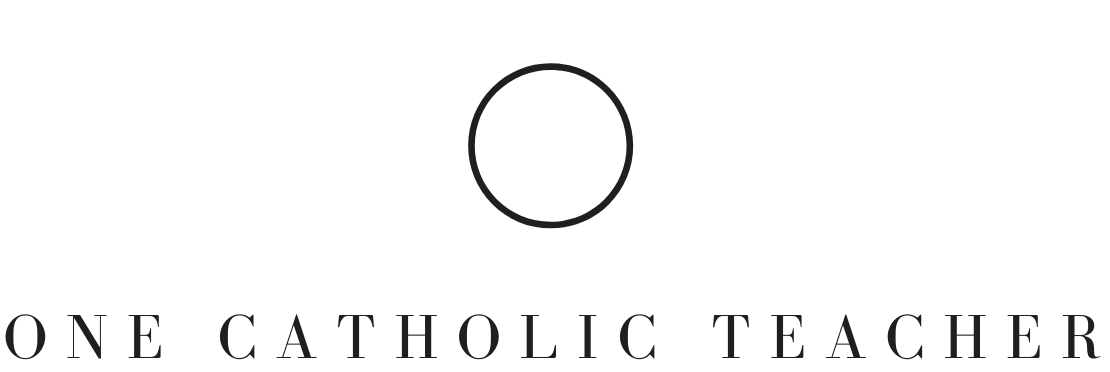
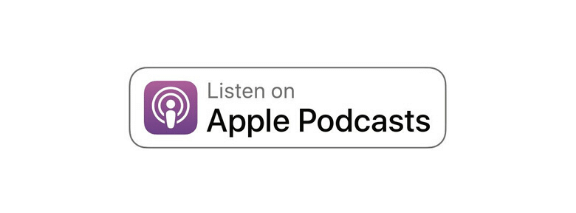


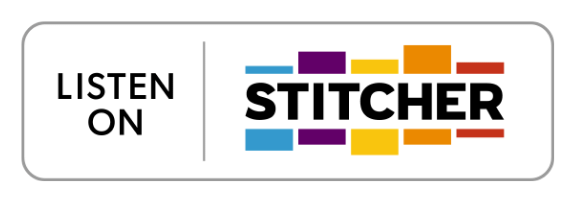
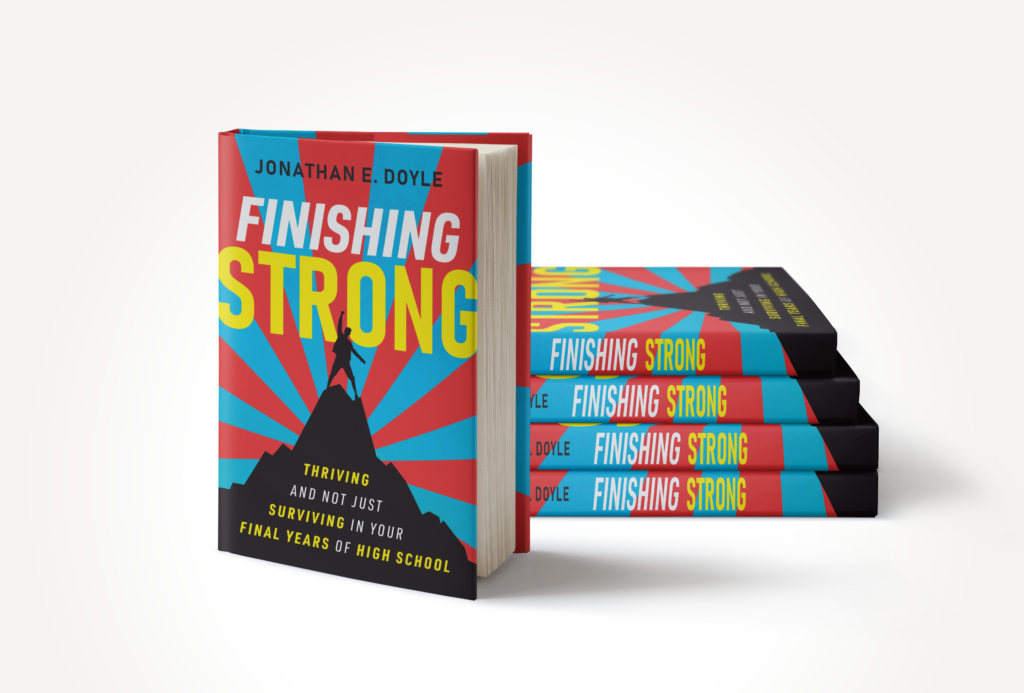







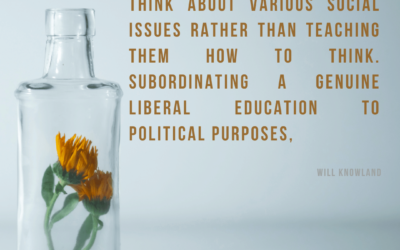


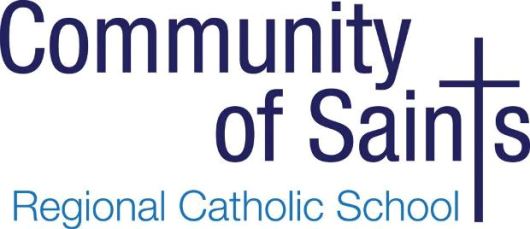

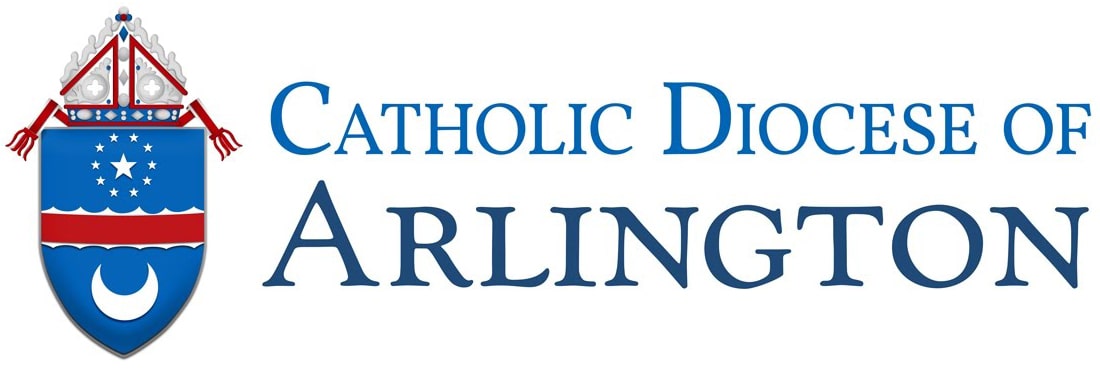
0 Comments